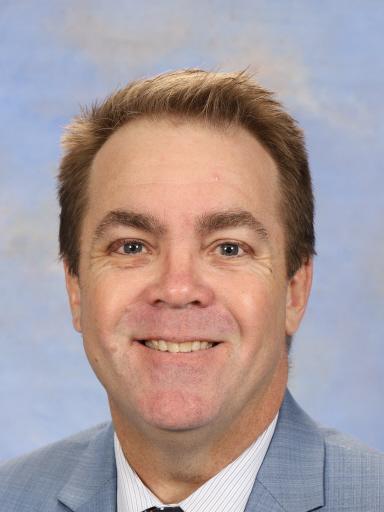PRINCIPAL'S REPORT

Unpacking our vision for the future
In 2019 the College launched its vision for the future – to be the school of choice in the Riverina. This is a lofty goal – as all aspirational statements should be. But what does it mean in real terms? Simply put, The Riverina Anglican College aspires to be the school that any student and family can be part of and thrive – no matter their strengths, interests, ethnicity, gender, faith, aspirations or desired post-school pathway. We aim to be inclusive and explore all aspects of our wonderful world and engender respect, learning and understanding in a local, national and global context. To be a place where every student feels they can learn and every student is safe. The reality of this statement is that young men and women are at the heart of all we do, all we aspire to be and all we work assiduously towards. Like all aspirational statements, it is never quite complete and it is always a work in progress. As such, it is essential that parents and students feel they can approach staff and me in particular to discuss any ideas or initiatives they have to further enhance the quality of the outworking of this vision.
Finishing up 2020
This year there will be a revised end to the school year. With the COVID-19 restrictions impeding any real planning opportunities and my desire to continue to keep our community safe, there will be no Activities Week in 2020. There will also be no Presentation Night. We will have a college-based Presentation Day on our grounds instead. Please see below for the revised end of term celebrations:
Friday 4 December – Final day for ALL students and Presentation Day (video production will be supplied to all families)
Monday 7 December – Staff professional development
Tuesday 8 December – Staff professional development
Year 7 2021 Orientation Program
We are all very much looking forward to our three day Orientation program for the incoming Year 7 on 18, 19 and 20 November. We have devised a packed and exciting experience for the students as they fully immerse themselves into their Houses and the Secondary School. All of the Heads of House and Student Leaders are ready to initiate the new students and give them all an authentic taste of what 2021 will bring.
It is my intention to host the traditional Parent Information Evening via Google Meet at 6:30pm on 19 November where senior staff and I will welcome the parents to the Secondary School community. Details about this will be emailed to all Year 7, 2021 families closer to the date.
Movember
As we enter November, many of the extended college community will be participating in Movember to raise awareness of men’s health, specifically testicular and prostate cancer and mental health. The following information about depression is from Beyond Blue.
While we all feel sad, moody or low from time to time, some people experience these feelings intensely, for long periods of time and often without reason. People with depression find it hard to function every day and may be reluctant to participate in activities they once enjoyed. Depression is one of the most common of all mental health problems. One in five people experiences depression at some stage of their lives.
What is Depression?
• Depression is not simply normal sadness, being moody or just a low mood, but a serious illness. It causes both physical and psychological symptoms
• Depression is common. Up to one in four females and one in six males will experience depression in their lifetime
• Depression is the leading cause of suicide in Australia
• Depression is often not recognised, treated or discussed.
• Current treatments for depression are safe and effective
Young Men
• Depression and anxiety often have their onset in the teenage years. This may be associated with loss of energy and social withdrawal but may also result in disruptive behaviours or increased use and abuse of drugs and alcohol
• Depression and anxiety are the most common mental health problems in young people.
• At any point in time, up to 5% of adolescents experience depression that is severe
enough to warrant treatment, and around 20% of young people will have experienced significant depressive symptoms by the time they reach adulthood
• In the longer term, depression can reduce social and job opportunities for young people as a result of early school dropout and erratic employment opportunities.
Adult Men
• Around one in six Australian men suffer from depression at any given time.
• Four times more young men than young women harm themselves due to depression.
• The experience of male depression is complicated by the fact that men are more likely than women to shy away from medical treatment of any kind. Instead of discussing psychological problems, or seeking appropriate treatment, men may turn to alcohol or drugs when they are depressed or anxious.
• The statistics for teenage boys and young men are a concern. In the past 30 years, the suicide rate for males aged 15 to 24 years tripled.
Paul Humble | Principal

